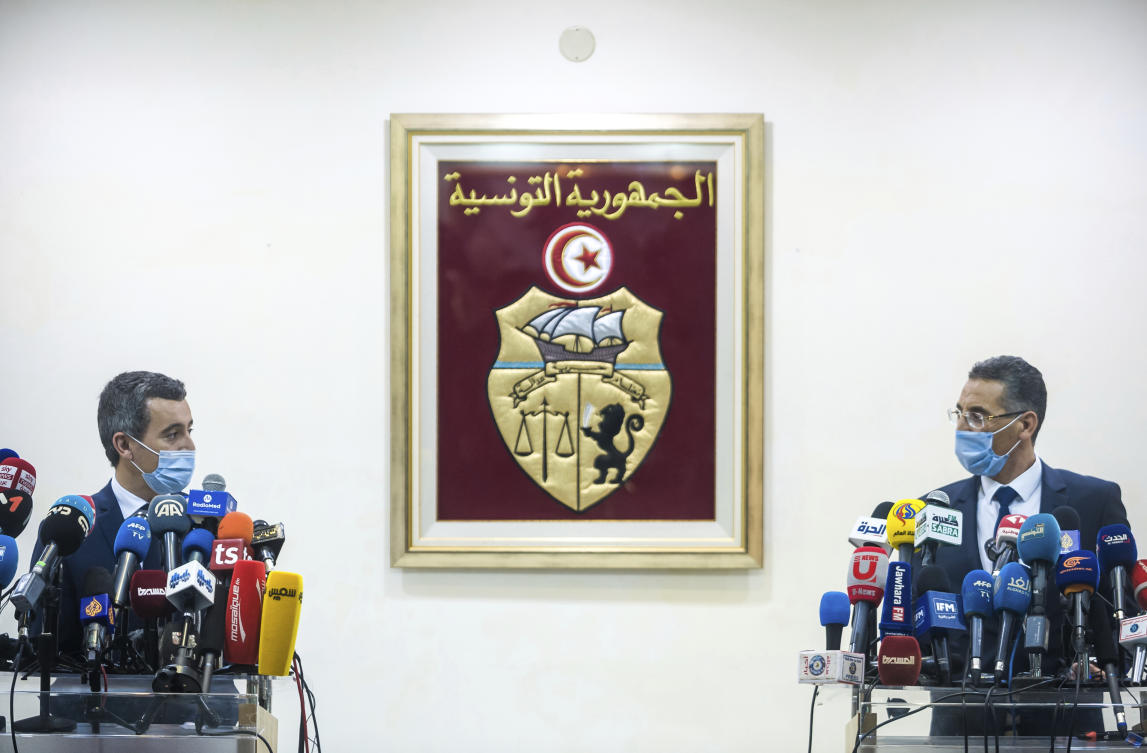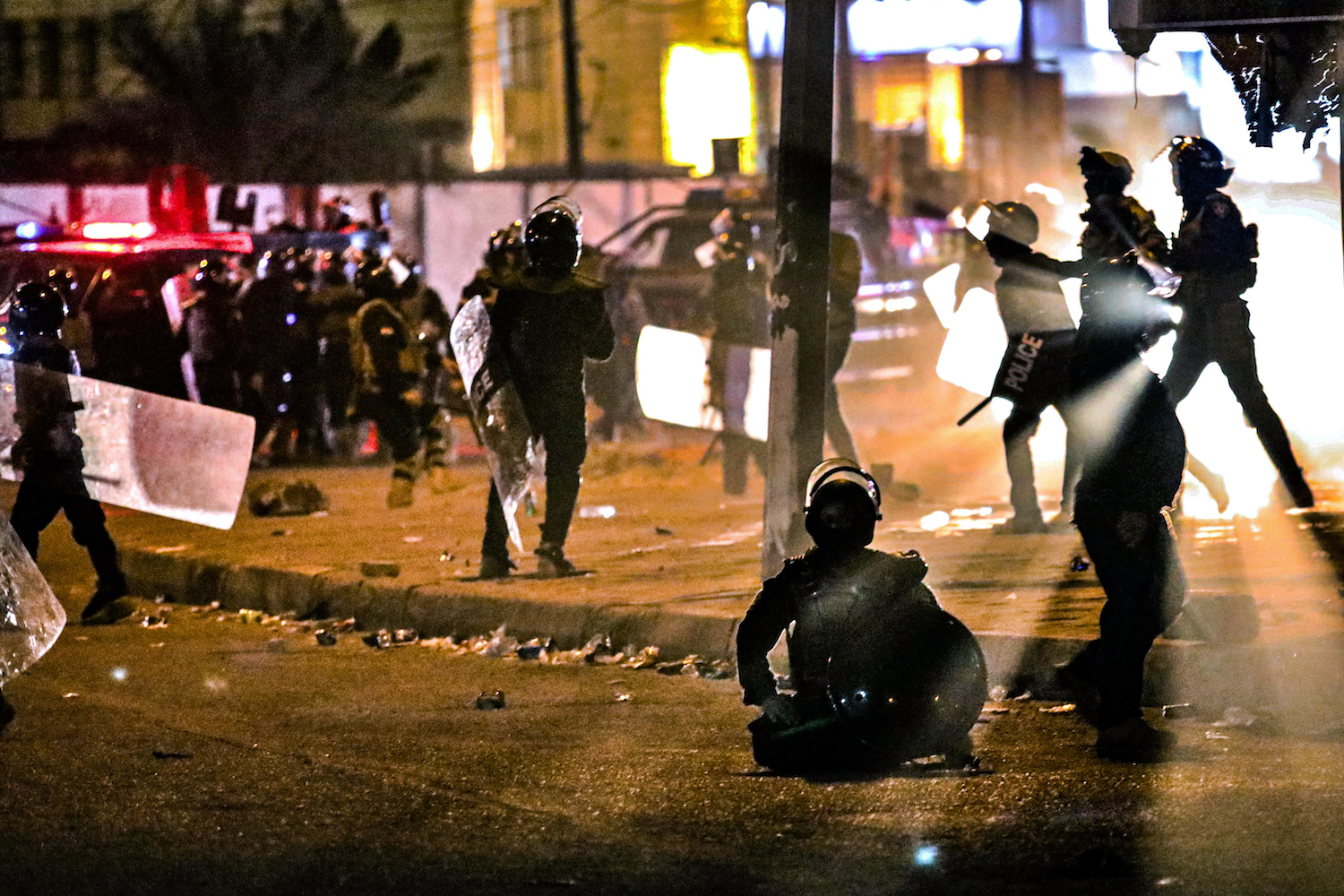French minister holds Tunisia talks on return of extremists
TUNIS: Tunisia said Friday it would take back from France its citizens suspected of being extremists, after last week’s deadly attack in Nice allegedly carried out by a Tunisian terrorist.
But Interior Minister Taoufik Charfeddine, following talks with his visiting French counterpart Gerald Darmanin, said their return would be conditional.
The former French colony is “prepared to receive any Tunisian,” Charfeddine said.
“But this must be done in line with conditions and regulations” under international laws and in “preserving the dignity of the Tunisian” being returned, Charfeddine told reporters.
Sources close to Darmanin said ahead of the talks that he would submit to authorities a list of some 20 Tunisians who France wants to expel, on the basis that they had been convicted on terrorism charges or were suspected of extremist inclinations.
The French interior minister is due to visit Algeria on Sunday on a similar mission.
Public opinion in Tunisia is hostile toward the return of suspected militants, and authorities have refused the return of their citizens from France on the basis of travel restrictions linked to the coronavirus pandemic.
Tunisian nationals have constituted a significant proportion of foreign terrorists in Syria, Iraq and Libya over the past decade.
In 2015, the United Nations said that some 5,000 Tunisians had flocked mainly to Syria and Libya to join Daesh, while authorities in Tunis gave a lower figure of 3,000.
Their return has been a cause of concern in Tunisia, which has been under a state of emergency following a string of Daesh-claimed attacks in 2015 and 2016.
Darmanin’s visit to Tunis was scheduled some time ago but it took on new urgency following the October 29 killing of three people at a church in the southern French city of Nice.
The alleged perpetrator of that attack, 21-year-old Brahim Aouissaoui, who arrived illegally in Europe in late September, is not the first Tunisian suspected of carrying out a deadly extremist attack in Europe.
In 2016, 31-year-old Mohamed Lahouaiej-Bouhlel plowed a truck into a Bastille Day crowd on the Nice seafront, killing 86 people.
Later that year fellow Tunisian citizen Anis Amri, 24, carried out a similar attack at a Berlin Christmas market, killing 12 people.
Daesh claimed both men as its followers.
Darmanin also met Tunisian President Kais Saied who stressed that his country would seek to find a “solution to obstacles that may arise” in the face of expulsions from France.
Several non-governmental organizations released a petition charging that European governments were “pressuring” Tunisia to take back its citizens.
The groups, including the Tunisian League of Human Rights, said European countries are “taking advantage of the fear sparked by the crimes committed by terrorists to get rid of illegal migrants.”
Darmanin is expected to discuss illegal migration in Algeria and also in a later visit to Malta.
Illegal sea crossings to Europe from Tunisia have been on the rise, largely driven by economic woes after a 2011 popular revolution that many hoped would bring change.
Sources close to Darmanin said the expulsions from France will also target common law criminals and would take into account “hygiene protocols” due to the coronavirus pandemic.
According to the sources, 70 percent of over 230 foreigners illegally in France and suspected of radicalism are from the Maghreb region, which includes Tunisia and Algeria, and from Russia.


Tunisian family of alleged Nice knifeman in disbelief over attackFrench Muslims feel fear and alienation after Nice attack






